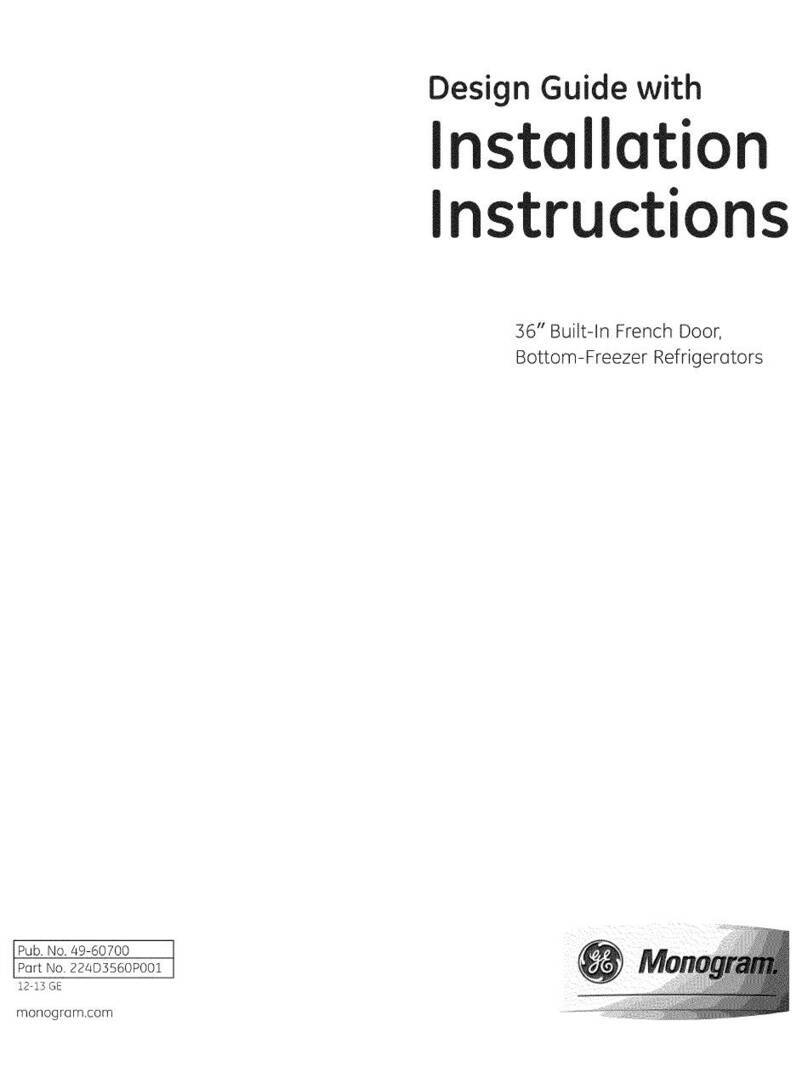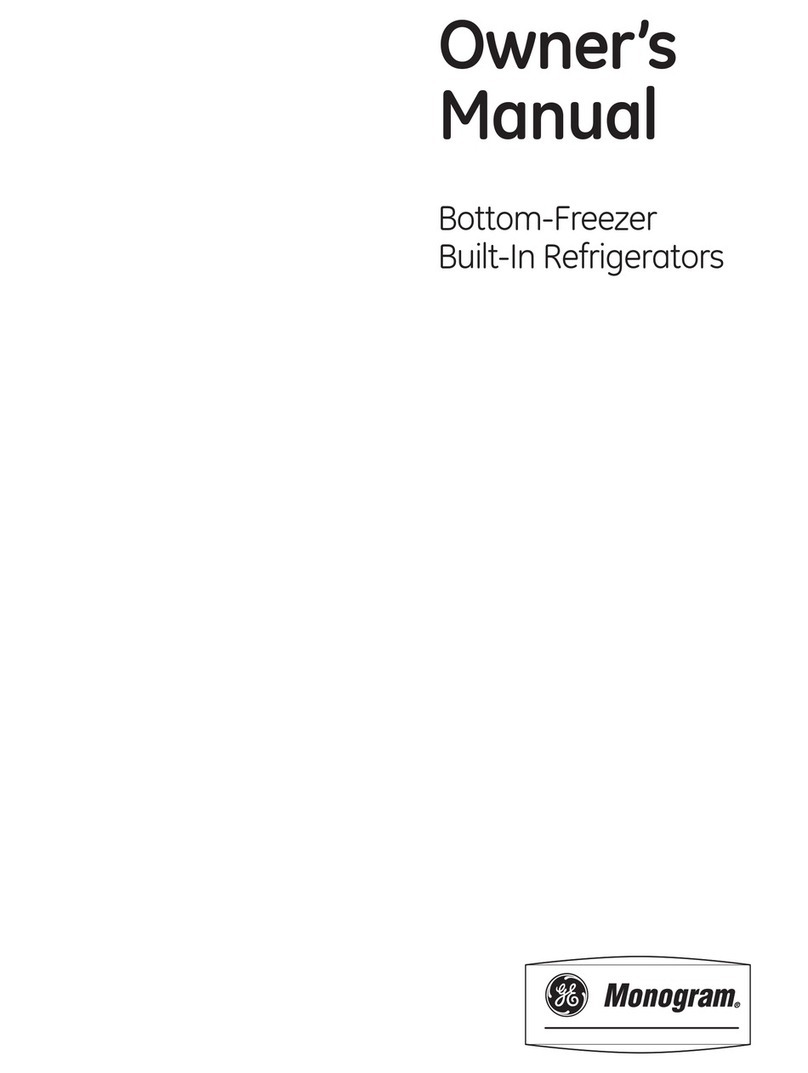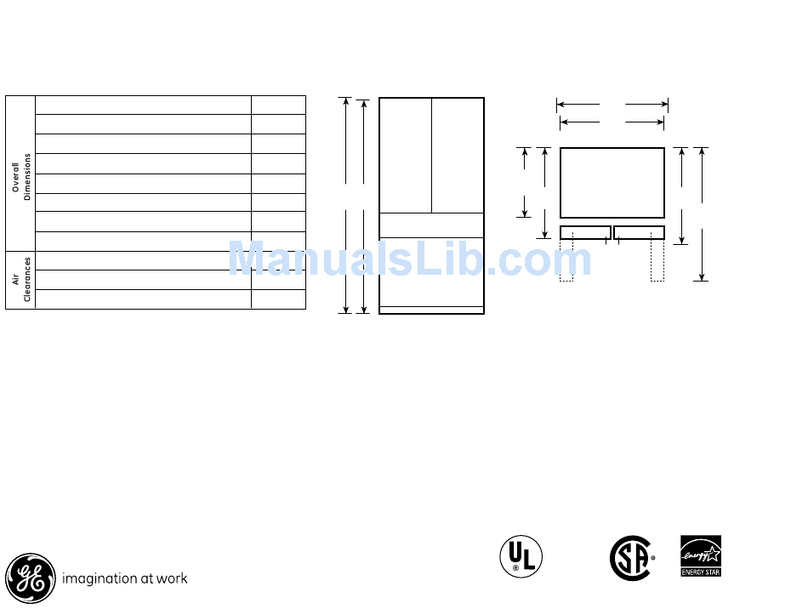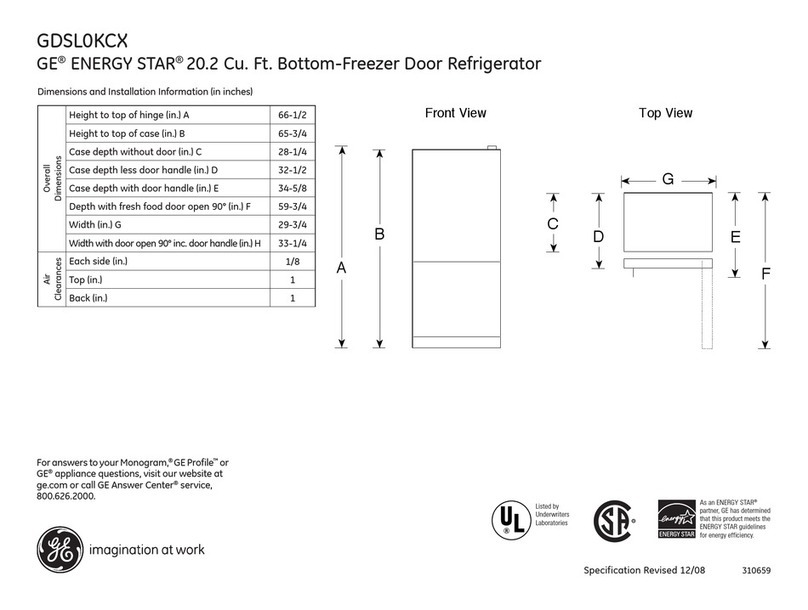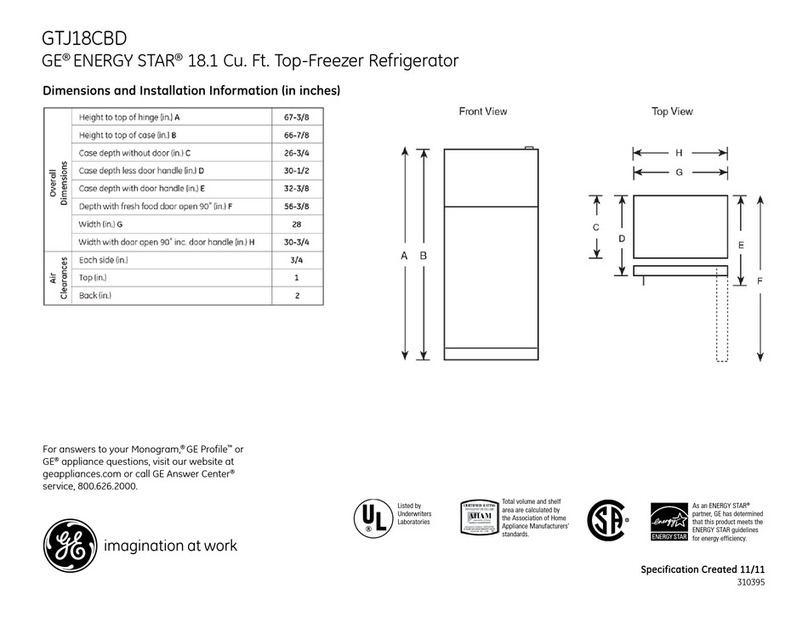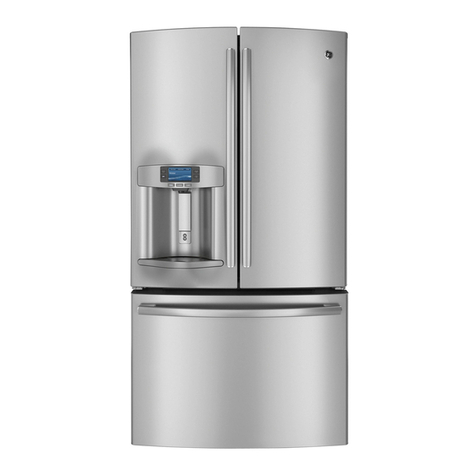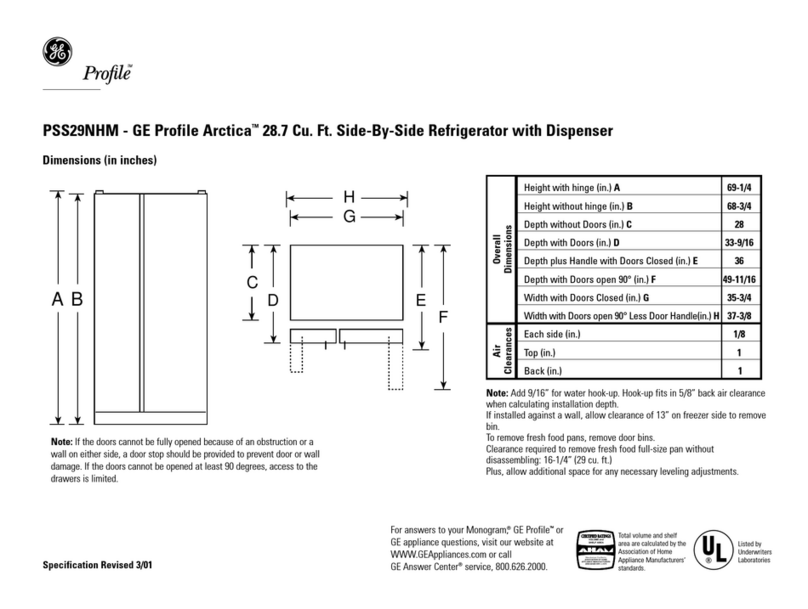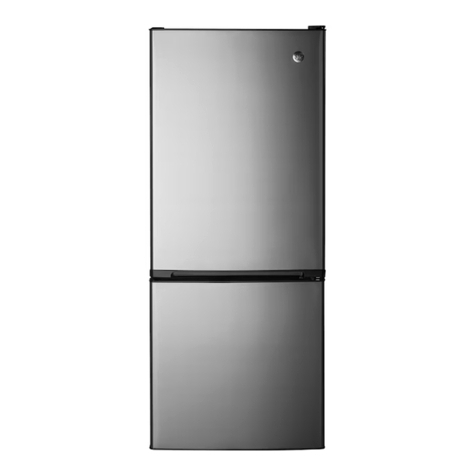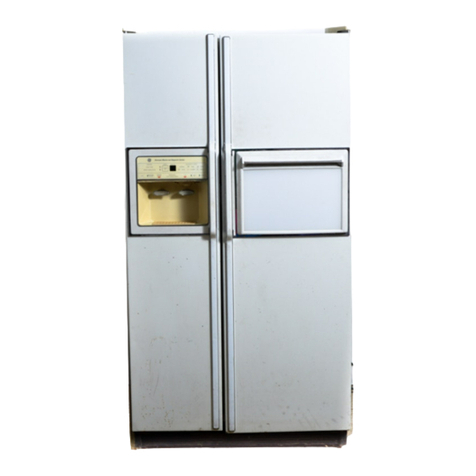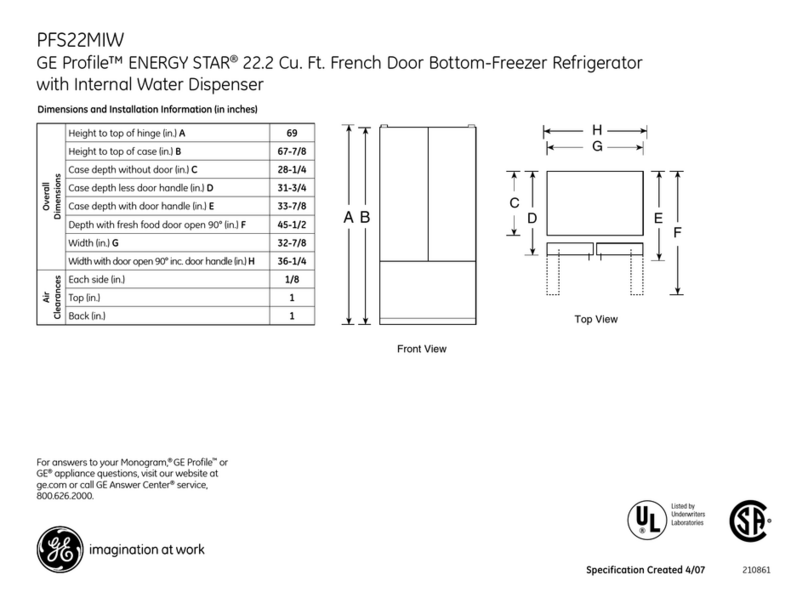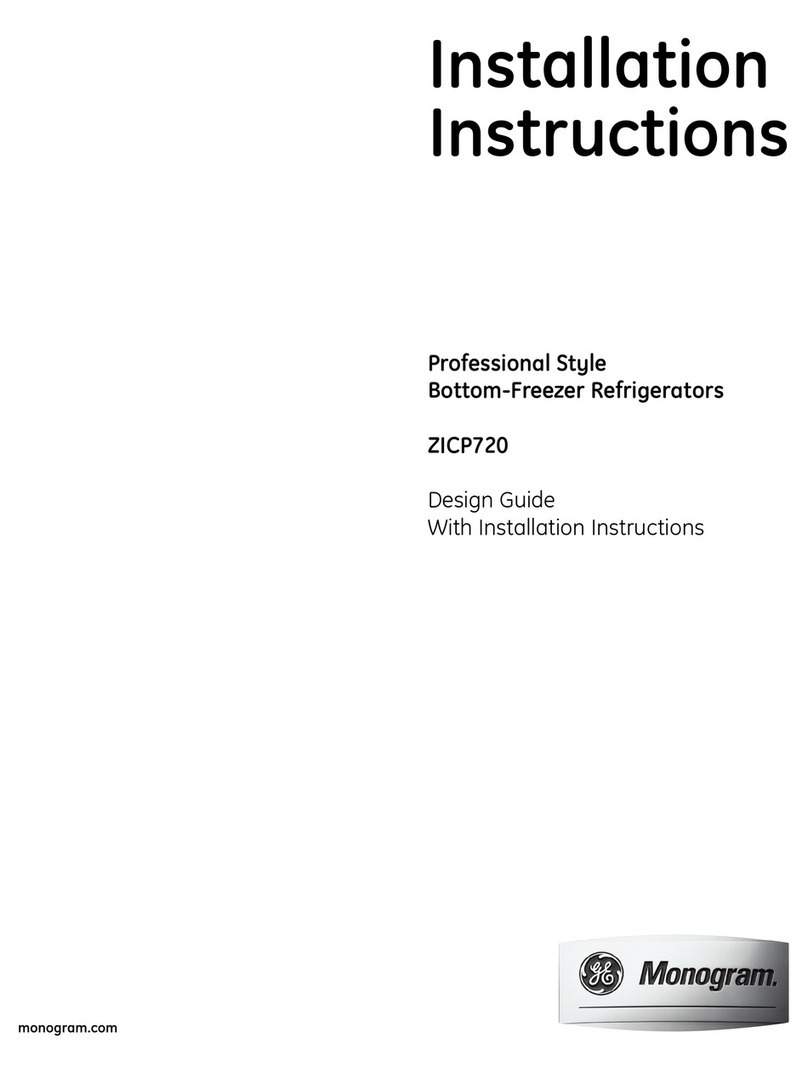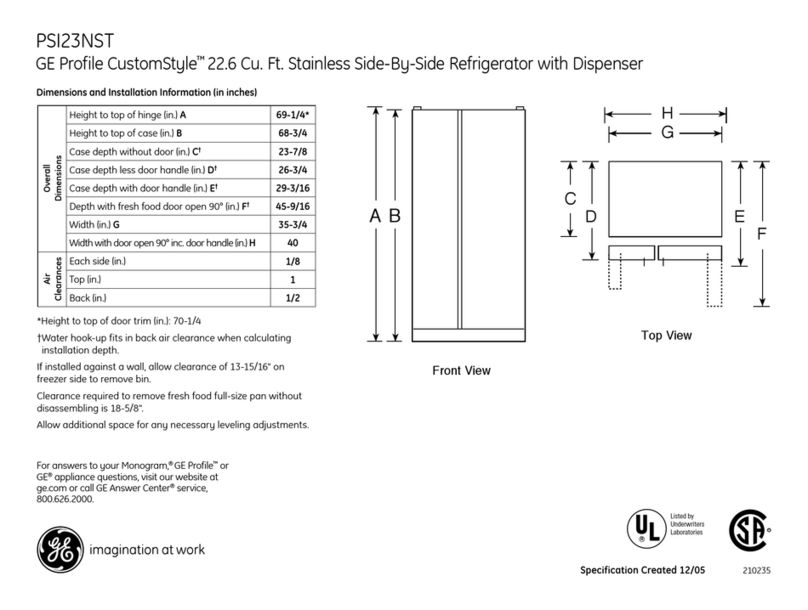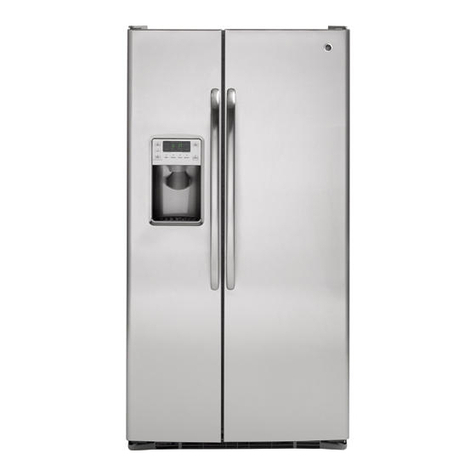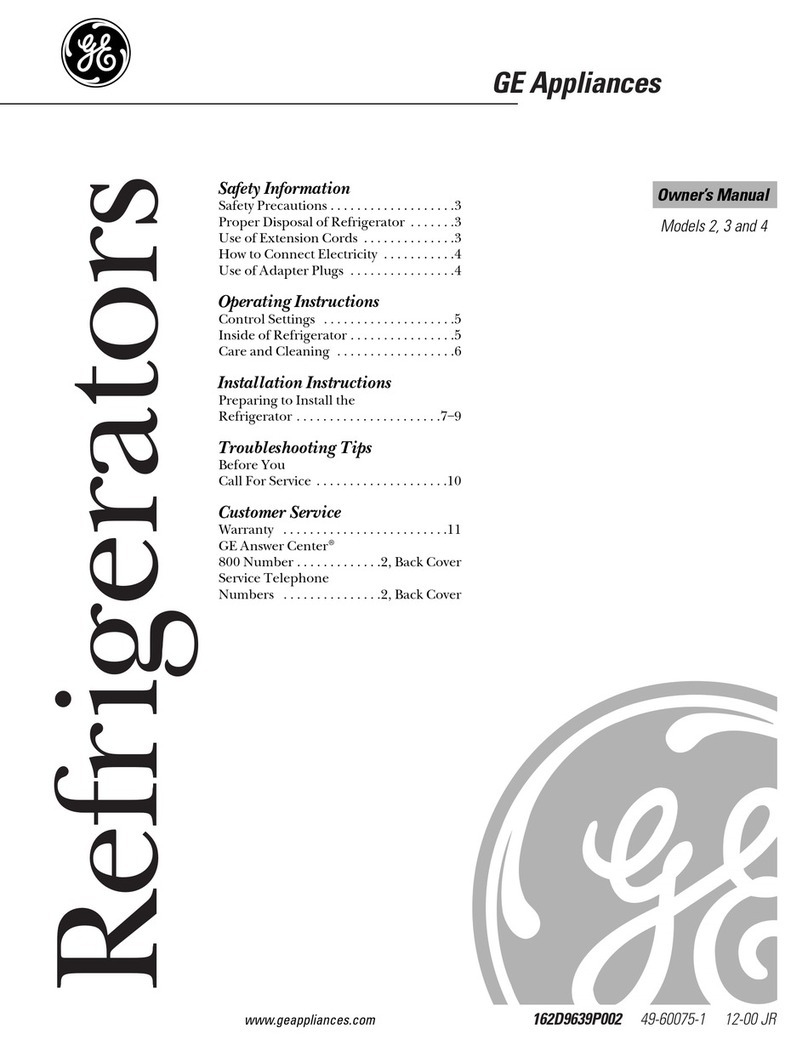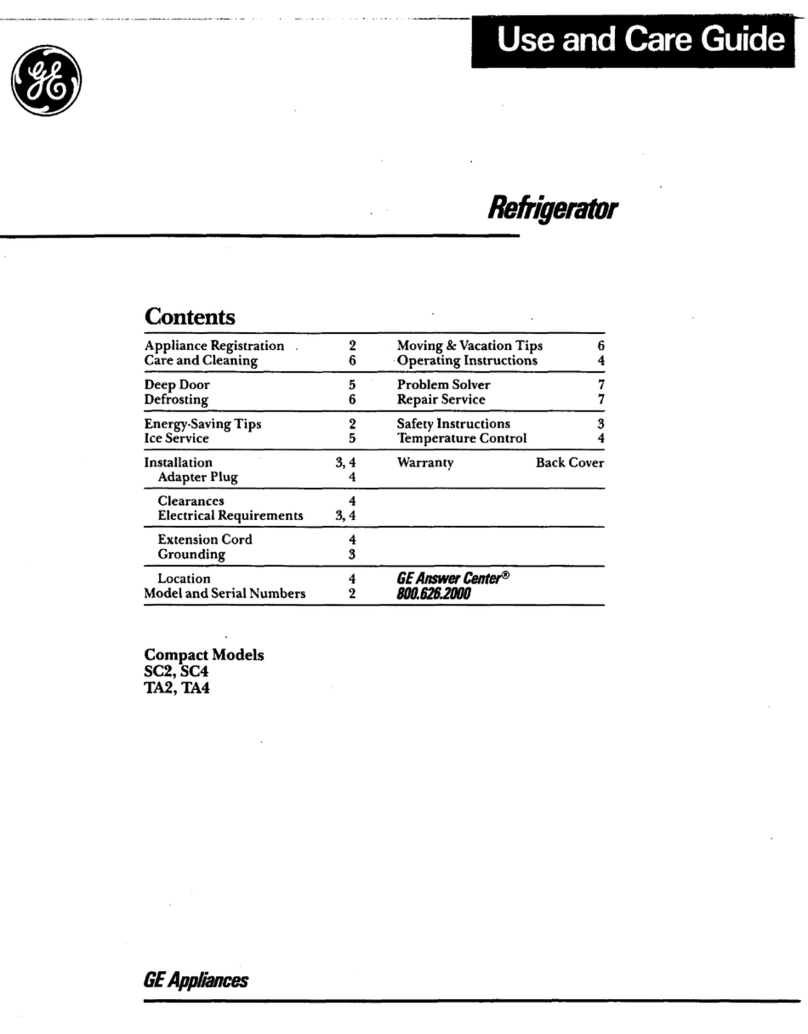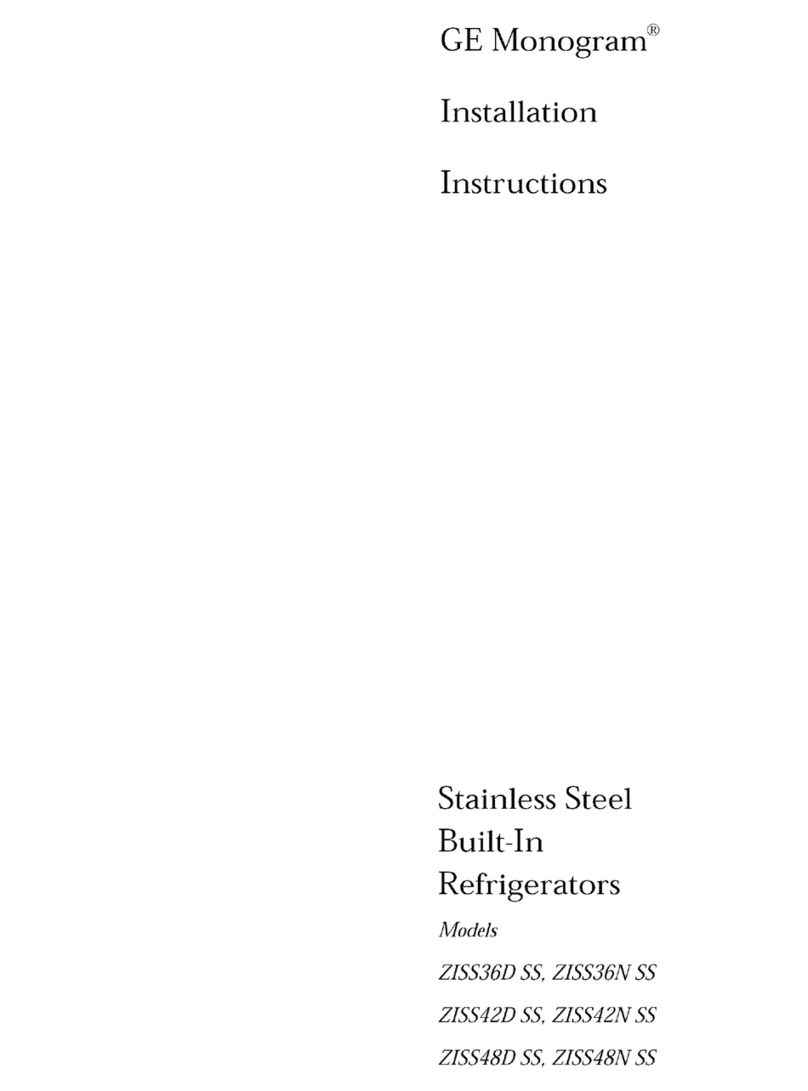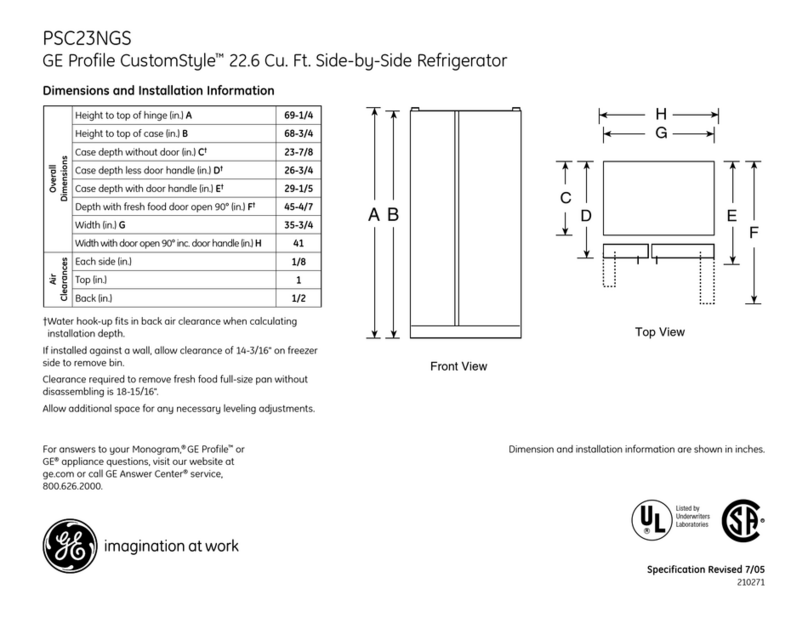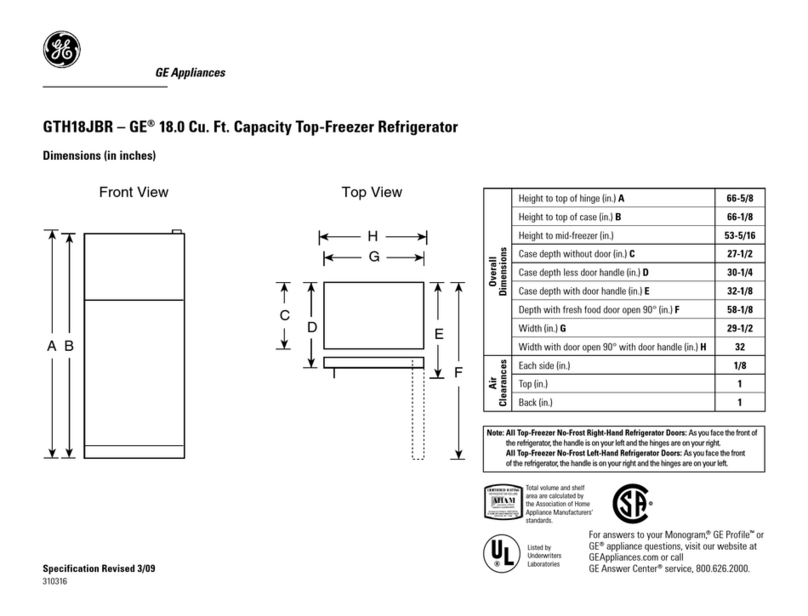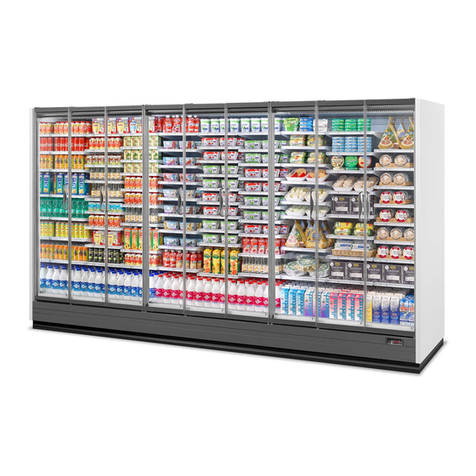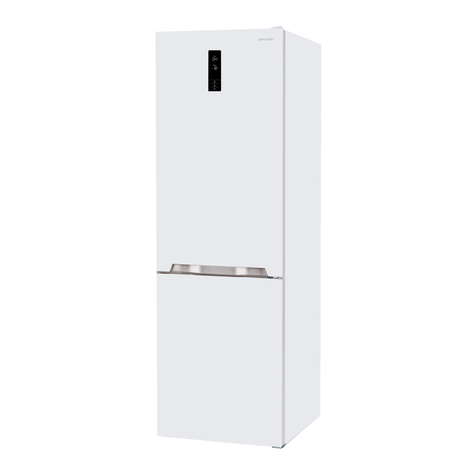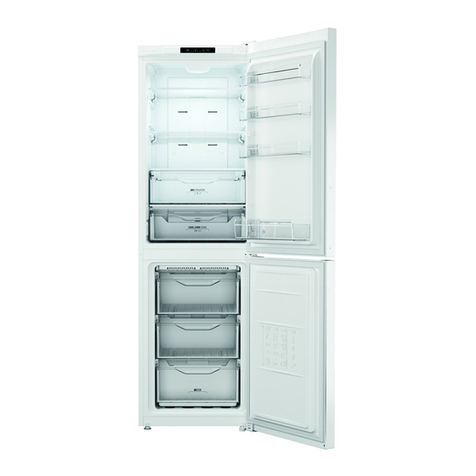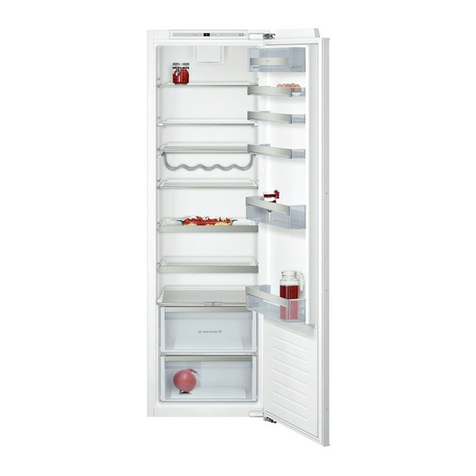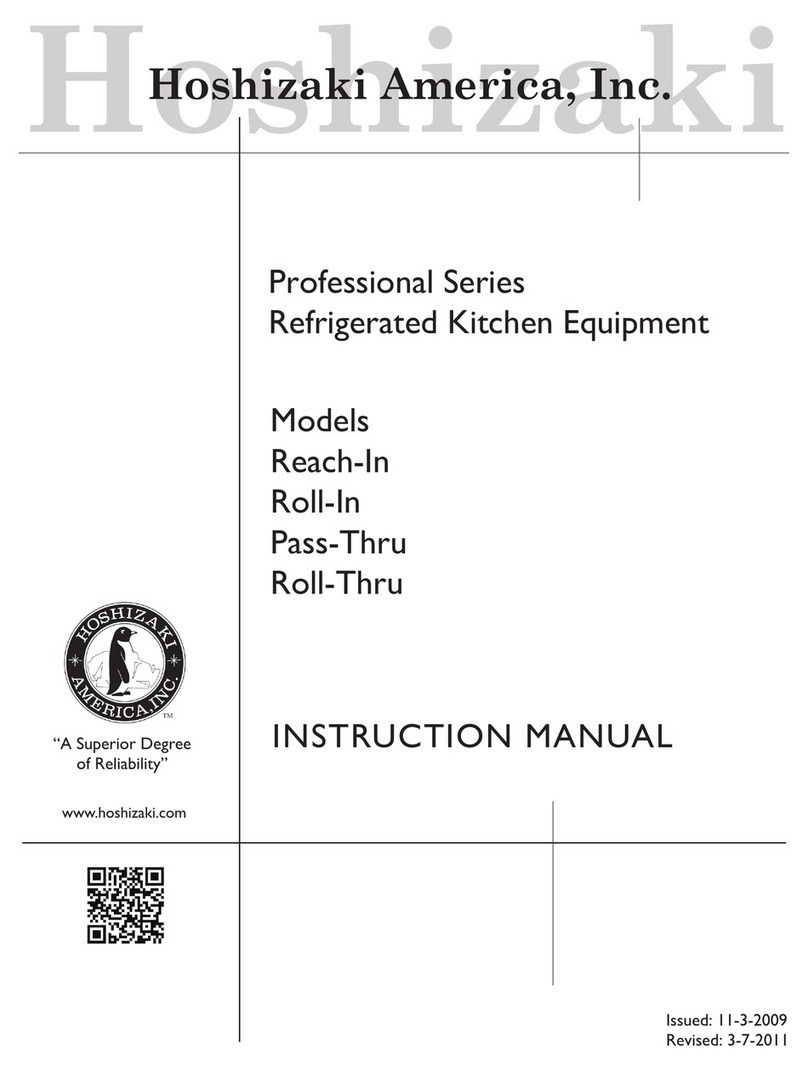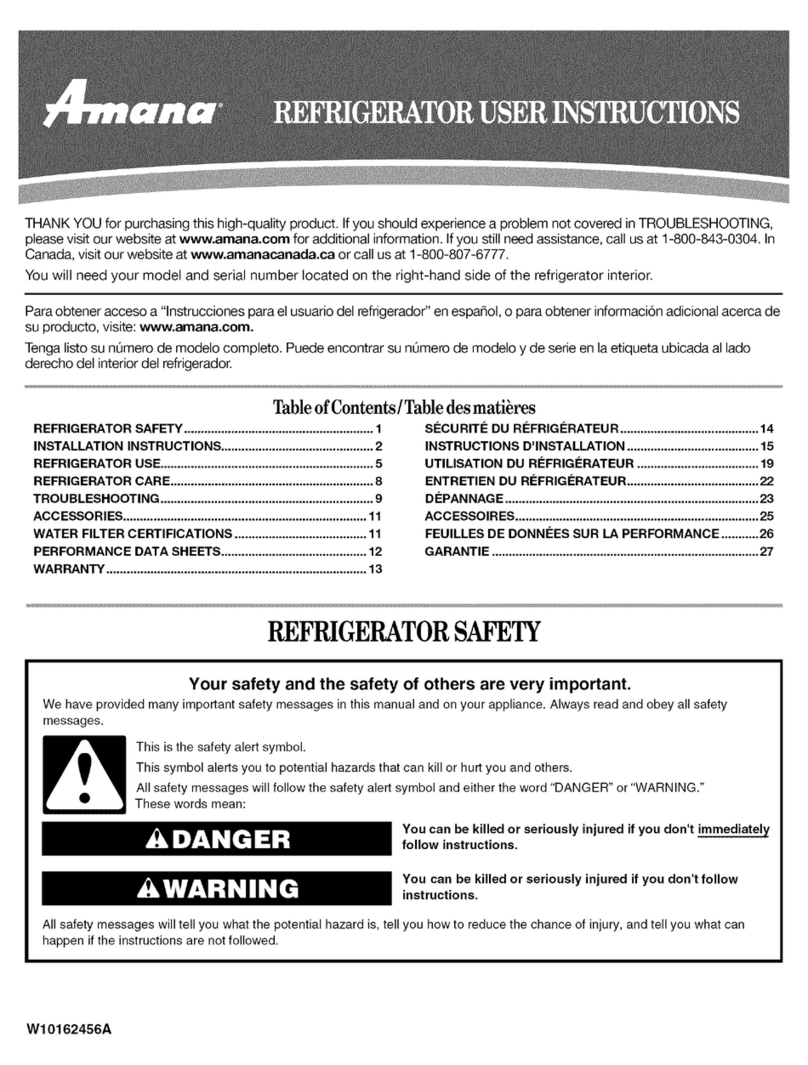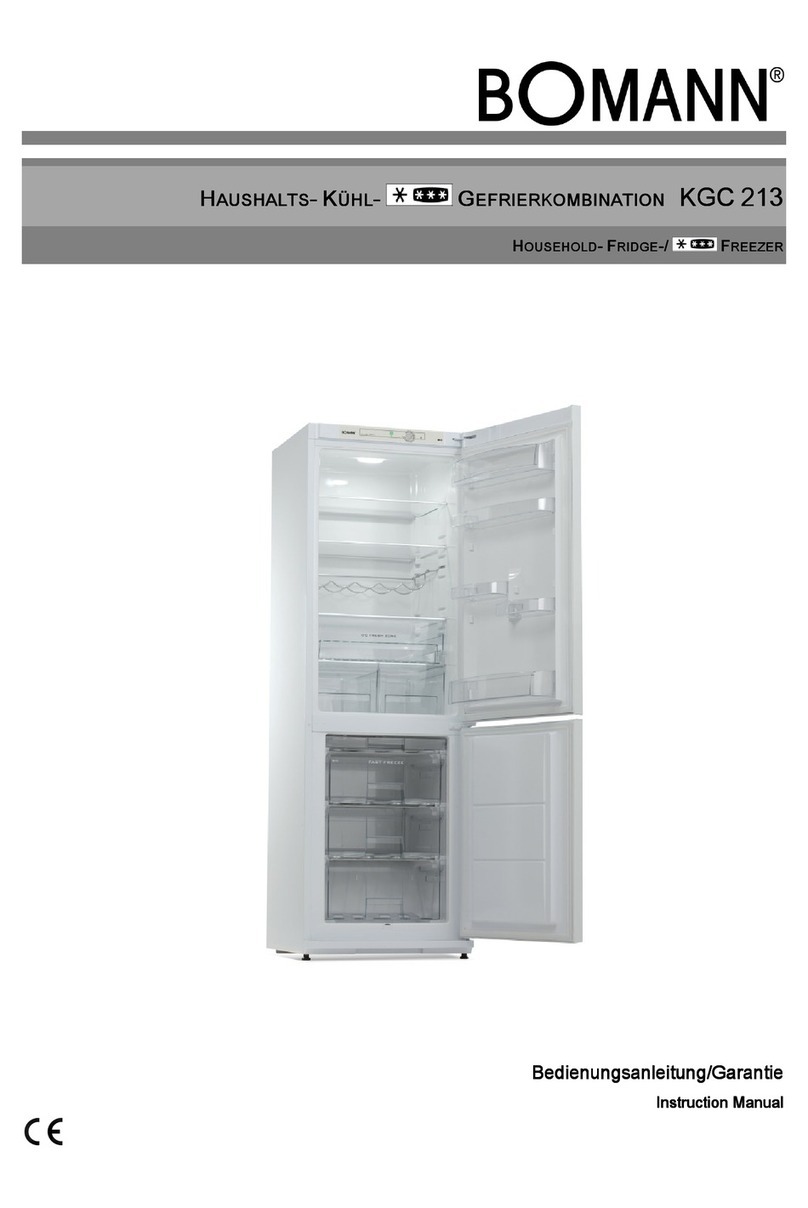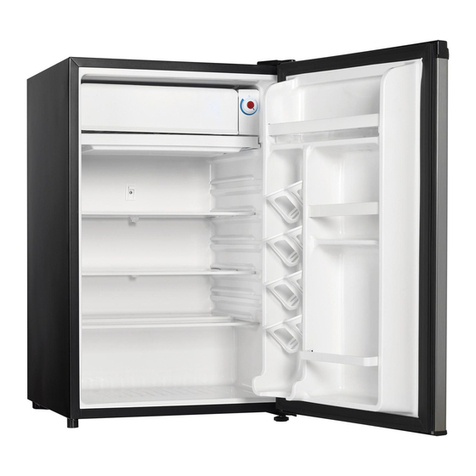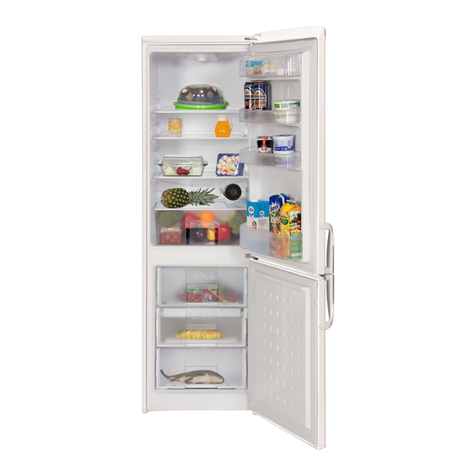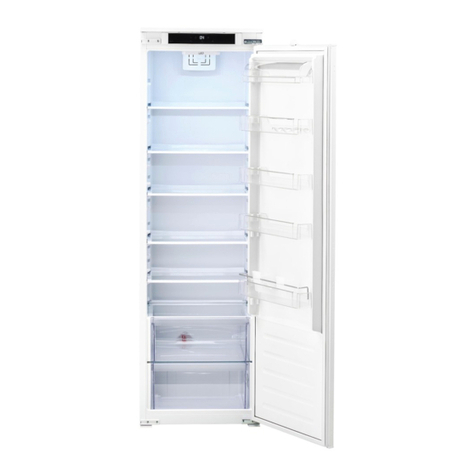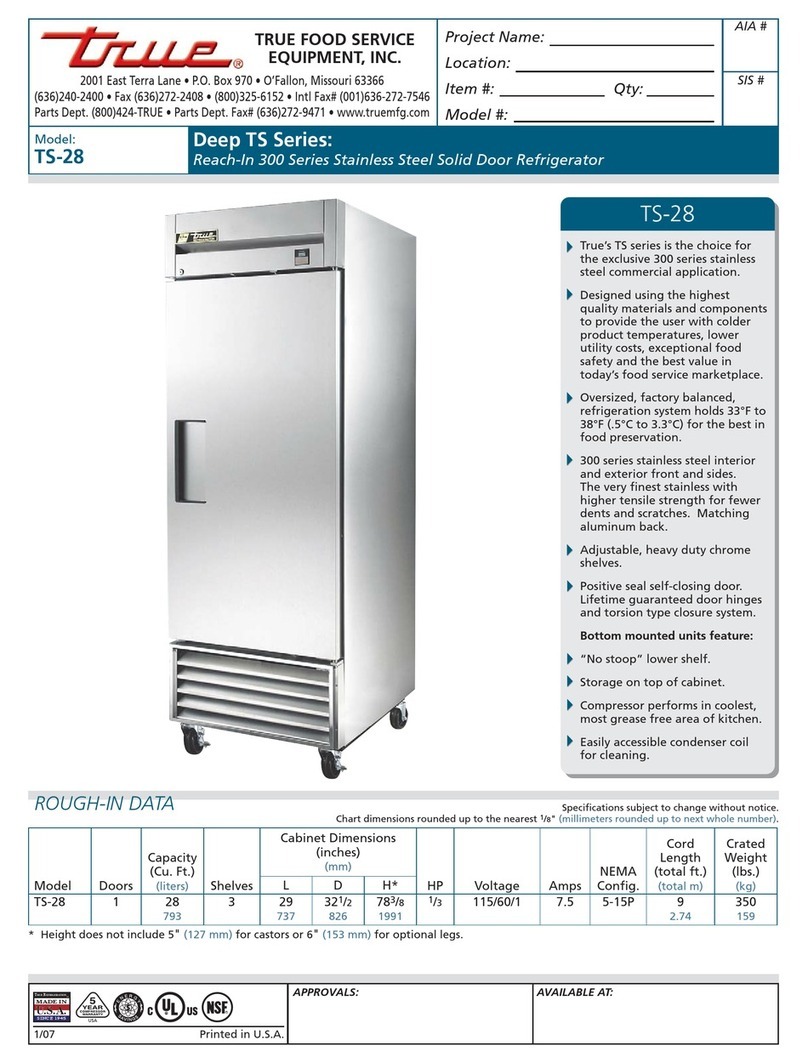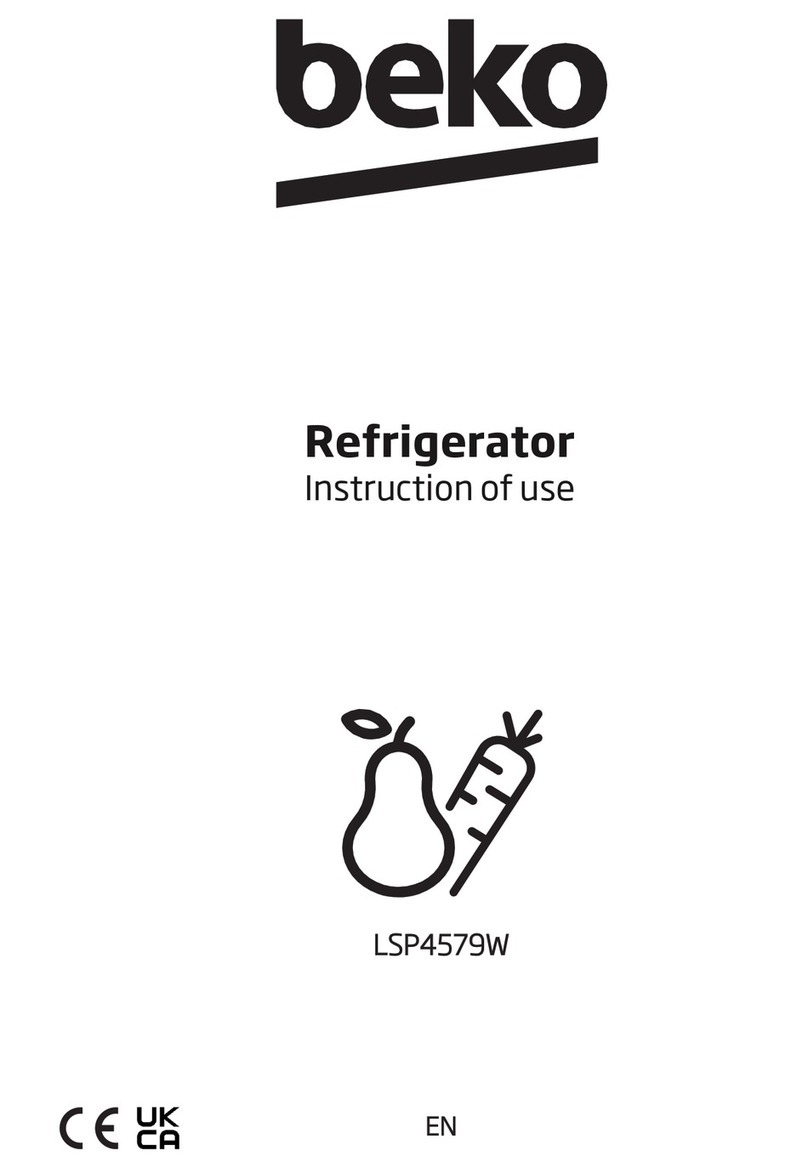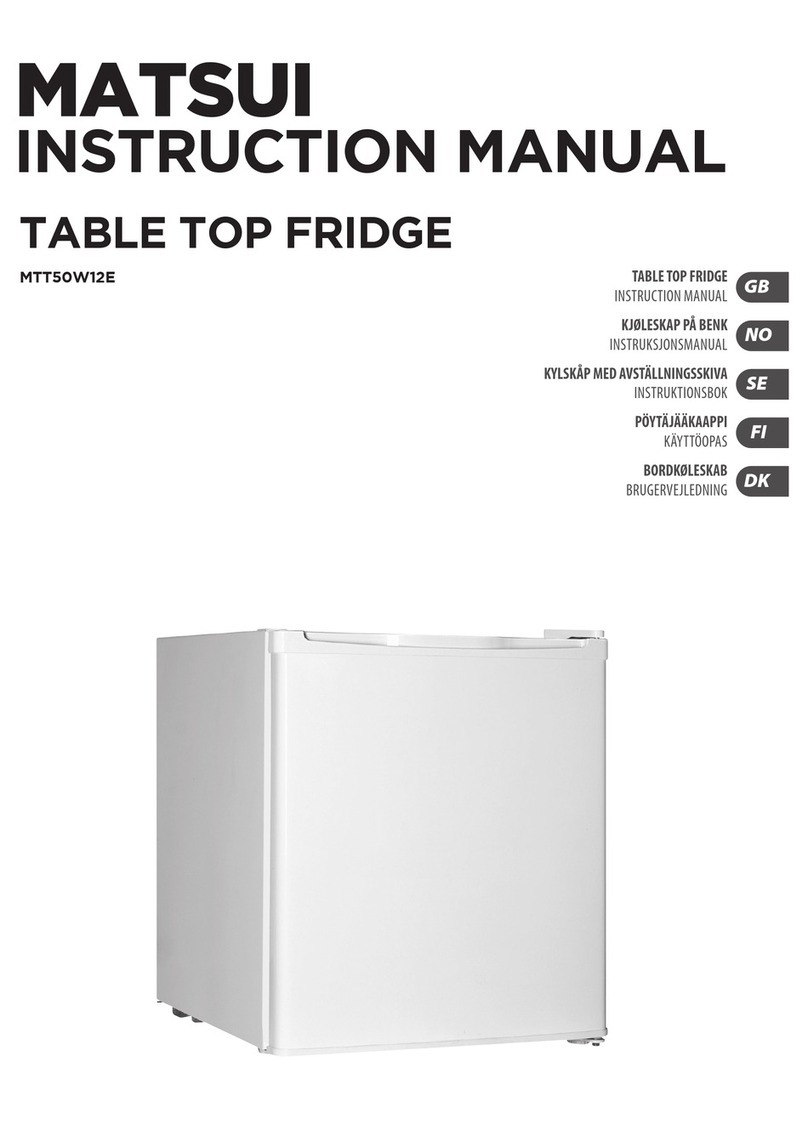IMPORTANTSAFETYINFORMATION.
READALL INSTRUCTIONSBEFOREUSING.
WARNING!
Use this appliance only for its intended purpose as described in this Owner's Manual.
SAFETYPRECAUTIONS
When using electrical appliances, basic safety precautions should be followed, including the following:
_,This refrigerator must be properly installed
and located in accordance with the Installation
Instructions before it is used.
Donot allow childrento climb,stand or hang on the
shelvesin the refrigerator.They could damage the
refrigerator and seriouslyinjure themselves.
Donot touch the cold surfaces in the freezer
compartment when hands are damp or wet.
Skinmay stick to these extremely coldsurfaces.
Donot store or use gasolineor other flammable
vapors and liquidsin the vicinity ofthis or any other
appliance.
Keepfingers out of the "pinch point" areas;
clearances between the doors and between the
doors and cabinet are necessarilusmall.Becareful
closing doors when children are in the area.
_:,Inrefrigerators with automatic icemakers,avoid
contact with the moving parts of the ejector
mechanism, or with the heating element that
releasesthe cubes.Donot placefingers orhands
on the automatic icemaking mechanism while
the refrigerator is plugged in.
Unplugthe refrigerator before cleaning and making
repairs.
NOTE:Westrongly recommend that any servicing
be performed by a qualifiedindividua!.
_,Setting either or both controlsto O(off} does not
remove power to the light circuit.
Donot refreezefrozen foods which have
thawed completely.
Ai,DANGER! RISK OF CHILD ENTRAPMENT
PROPERDISPOSAL OF THEREFRIGERATOR
Childentrapment and suffocation are not problems of
the past. Junked or abandoned refrigerators are still
dangerous...evenif they will sit for "just a few days."
If you are getting rid of your old refrigerator,please
follow the instructions below to help prevent
accidents.
Before You Throw Away Your Old
Refrigerator or Freezer:
Take off the doors.
Leavethe shelvesin place sothat children may not
easily climb inside.
Refrigerants
All refrigeration products contain refrigerants,
which under federal law must be removed prior
to product disposal. If you are getting rid of an
old refrigeration product, check with the company
handling the disposal about what to do.
USEOF EXTENSION CORDS
Because of potential safetg hazards under certain conditions, we stronglg recommend against
the use of an extension cord.
However,if you must usean extension cord, it isabsolutely necessarythat it be a UL-listed(inthe United States)
or a CSAcertified (in Canada),]-wire grounding type appliance extension cord having a grounding type plug
and outlet and that the electrical rating of the cord be 15 amperes (minimum)and 120 volts.

